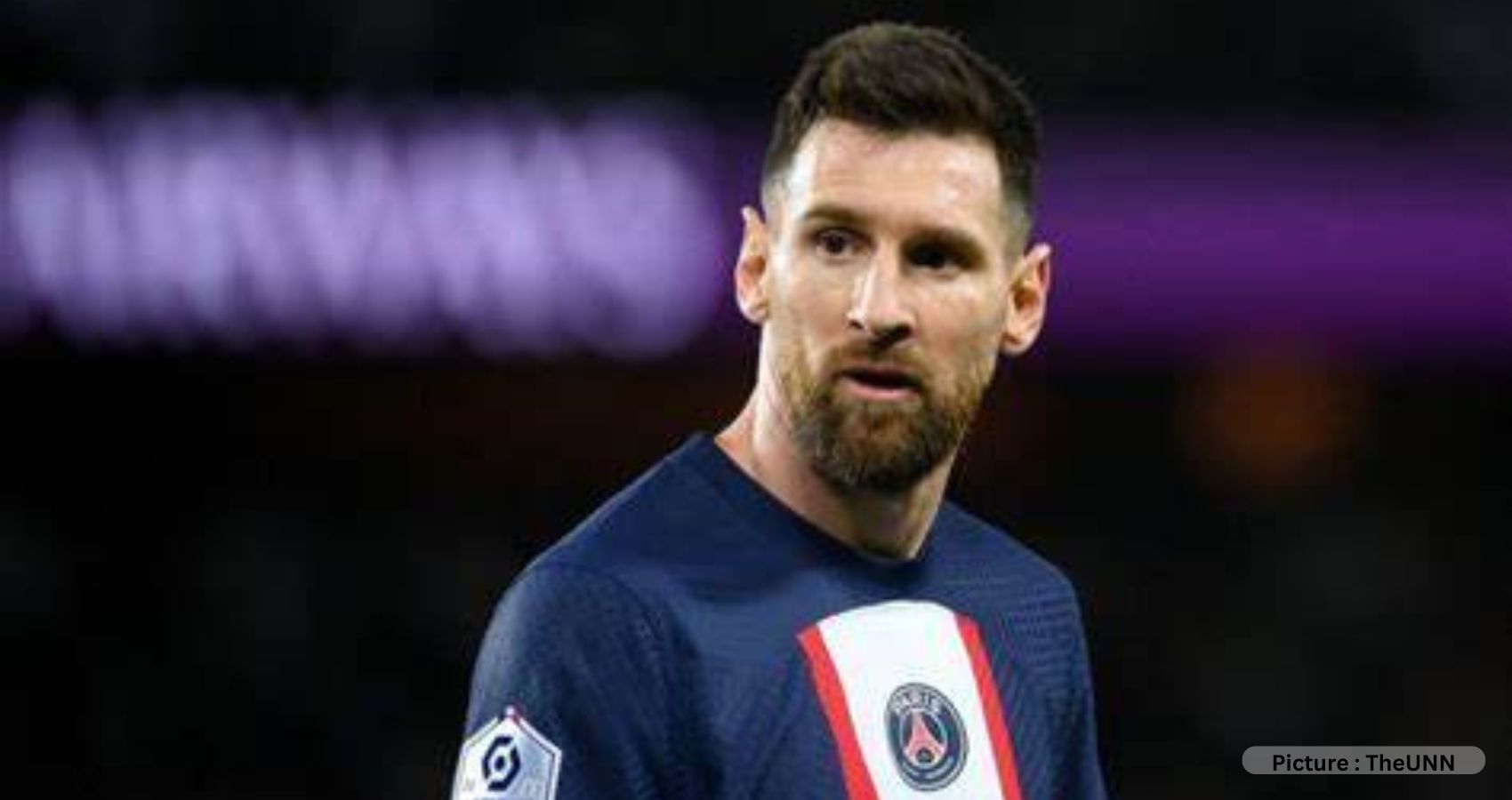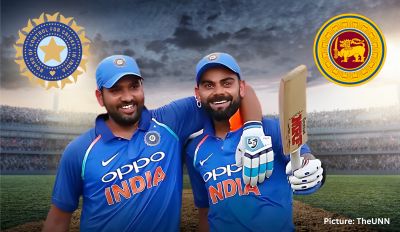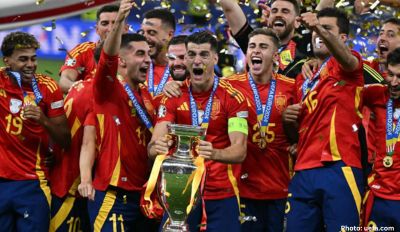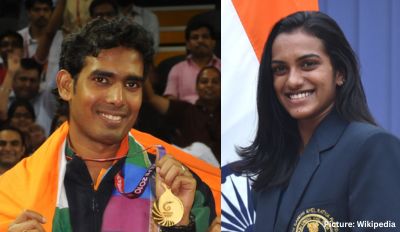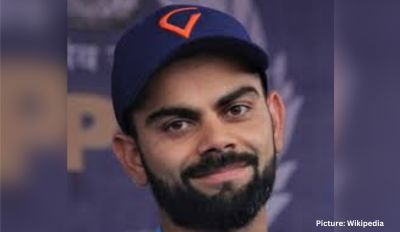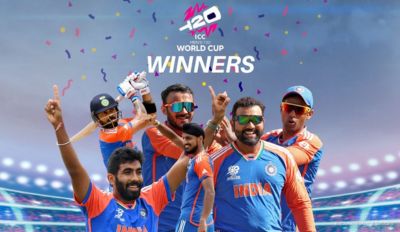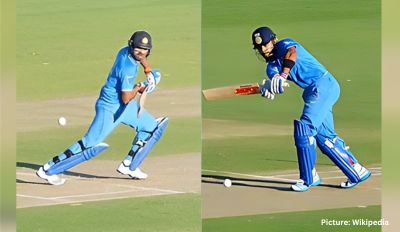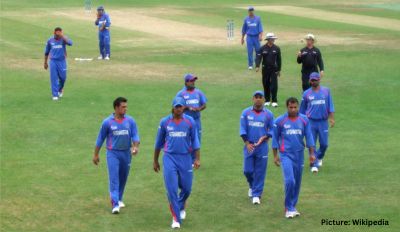Paris Saint-Germain (PSG) has suspended superstar Lionel Messi for two weeks and intends to dock his pay following his decision to fly to Saudi Arabia to attend promotional events for Visit Saudi, his personal sponsor. Messi’s absence from PSG’s upcoming matches could compromise the club’s chances of securing what would be a historic 11th Ligue 1 title, as they are only five points ahead of the team in second place, Marseille, with five matches left to play. As senior officials at PSG have stated, the club intends to create a culture focused on a collective brand rather than on individual stars.
This point is particularly relevant to PSG, which has previously been accused of having a “team of superstars” rather than a true team working together. Hence, this suspension is the club’s way of drawing a line and setting the record straight. PSG’s President, Nasser Al-Khelaifi, who leads Qatar Sports Investments, is determined to establish a new culture of team spirit at the club.
While PSG’s decision to suspend Messi is a brave one, it could cost them his services in the future. Despite being on a two-year deal, it’s likely that Messi will leave PSG this summer, with rumours of possible moves to Saudi Arabia, Inter Miami, or even back to Barcelona.
This incident comes in the months following Qatar’s successful bid to host the 2022 World Cup and this year’s world cup which saw Messi finally lift the trophy he had been chasing for so long. In contrast, Saudi Arabia hosted some of Messi’s promotional events. However, Qatar and Saudi Arabia may face a different type of battle: hosting the 2030 World Cup.
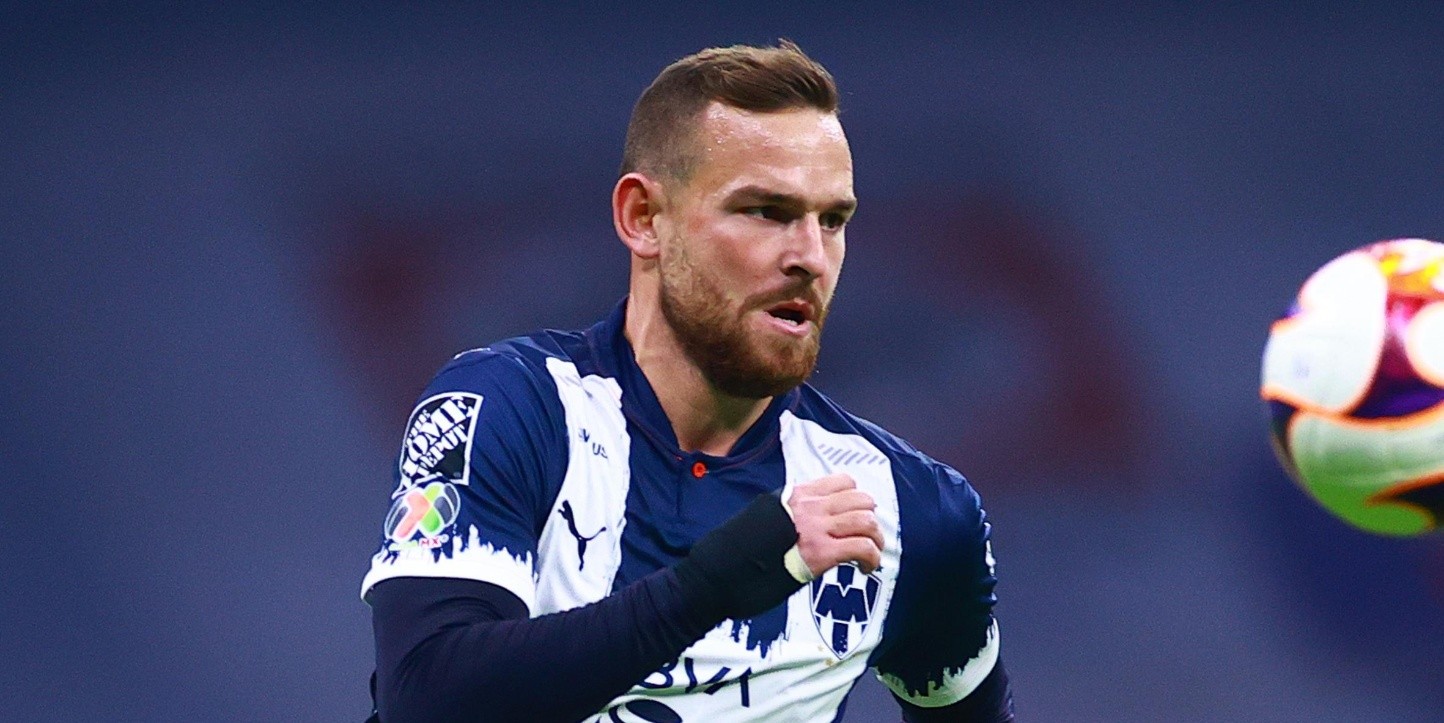
The bidding process for hosting the 2030 World Cup began in June this year, and the winner will be announced at the 74th FIFA congress in 2024. There are currently four confirmed bids. The first is a joint bid by Spain, Portugal, and Ukraine which was announced in 2022. The second bid is a South American co-production comprised of Argentina, Uruguay, Paraguay, and Chile. In March of this year, Morocco replaced Ukraine and joined forces with Spain and Portugal following their semi-final finish at the World Cup. Finally, Saudi Arabia, Egypt, and Greece are expected to submit a combined bid.
However, Saudi Arabia’s bid may be negatively impacted by Messi’s recent suspension, which could suggest a lack of discipline and possibly affect the country’s ability to host large international tournaments.
“A South American bid for 2030 is very strong,” its co-ordinator Fernando Marin told The Athletic. “The region is a generator of talent that expresses itself all over the world. Additionally, on the 100th anniversary of the first World Cup in Uruguay in 1930, it would be a fitting location.”
Lionel Messi’s recent agreement to promote tourism in Saudi Arabia could possibly hinder South America’s joint bid to host the 2030 World Cup. Messi became an ambassador for “Vision 2030” last year, which according to the government is a “unique transformative economic and social reform blueprint that is opening Saudi Arabia up to the world”. As hosting the World Cup is linked to promoting tourism, it is speculated that Saudi Arabia’s bid for the tournament is connected to their overall vision. Saudi Arabia has been making efforts to improve its reputation globally by making it more attractive for foreign investors. Some of these include acquiring the English Premier League club Newcastle United, backing the LIV Golf breakaway tour, a 10-year, $650million deal to host Formula One races, and hosting the 2019 heavyweight boxing match between Anthony Joshua and Andy Ruiz.
Messi signed the agreement with Saudi Arabia last year, and its terms and length have not been disclosed. Cristiano Ronaldo reportedly rejected a promotional offer worth over £5million per year to promote Saudi tourism. However, sources familiar with ambassadorial roles in the Gulf region claimed that Messi’s deal may be worth five times Ronaldo’s annual fee. Representatives for Messi declined to disclose the figures involved, and the Saudi government did not respond to requests for comment.
The joint bid between Argentina, Uruguay, Paraguay, and Chile for the 2030 World Cup was first introduced in 2017, where Messi and Luis Suarez of Barcelona teamed up to promote their countries. While Messi initially expressed great interest in supporting the bid, his role as an ambassador for Saudi Arabia’s tourism industry is raising concerns that it could impact South America’s chances of hosting the tournament.
The bid itself has been seen as a symbolic one, as the inaugural World Cup was held in Uruguay in 1930, with Argentina finishing runners-up in that tournament. However, it has also been received with mixed reviews due to political tensions between Chile and Argentina that emerged from the Falklands War. The bid is also in competition with the United Kingdom, Ireland, and Morocco for the hosting rights.
Messi’s ambassadorial role in Saudi Arabia’s tourism industry has raised questions due to Saudi Arabia’s human rights record which includes the imprisonment of activists and financing of international terrorism. Since Saudi Arabia is considered a controversial destination for sports teams and fans due to these issues, Messi’s agreement has been met with criticism from fans and human rights organisations like Amnesty International.
The relationship between Messi’s role in Saudi Arabia and the 2030 World Cup bid remains uncertain. While there is some concern that Messi’s Saudi ties could harm the South American joint bid, there has been no official statement from the Argentina Football Association or Messi himself on the matter. For many fans, the priority remains on the ethics of Messi’s association with Saudi Arabia and the impact it could have on promoting tourism in a country with a questionable human rights record.
“This is not his first visit to the kingdom and it will not be the last,” said Ahmed al-Khateeb, the Saudi minister of tourism, in a tweet that showed Messi’s welcome at King Abdulaziz International Airport.
“Discovering the Red Sea #VisitSaudi,” read the caption on Instagram, where Messi has over 370 million followers. The post was labelled as a “paid partnership” with Visit Saudi, which is a subsidiary company of the Saudi Tourism Authority.
Messi later joined Princess Haifa Al-Saud, assistant minister of tourism, on a tour of old Jeddah. “I am glad that he was mesmerized by its essence, heritage and beauty,” Princess Haifa said on Twitter.
Amidst a great number of scandals concerning the Kingdom of Saudi Arabia, Lionel Messi has taken a role in promoting their country as a tourist destination. The page now on the Visit Saudi website featuring Messi urges people to “unleash their inner thrill-seeker” and take part in all that the nation has to offer. Whilst his representatives have been tight-lipped about how regularly he will visit or if this partnership will clash with his home country’s efforts to host a World Cup in 2030 – the potential conflict of interests between him and UNICEF remain unclear.
The region is reportedly backed by ample resources which may aid in staging the global sporting event nine years from now should they choose to pursue their bid; however, there are worries that Morocco’s involvement with Spain/Portugal’s joint bid may steal away votes from Middle Eastern/North African countries who may have otherwise supported them, thus making it more likely for them to wait for 2034. Coupled with this, FIFA pulled out of sponsoring Visit Saudi for the Women’s World Cup following protests by many nations – though Messi’s mission remains vital. When asked about Neymar Jr.’s agreement to promote tourism in Saudi Arabia despite any alleged human rights violations, his team were not available for comment.
As a Goodwill Ambassador for UNICEF since 2010, it raises suspicion as to whether his connection with such a state could go against his position. For example, UNICEF reported in 2021 that over 10,000 children had suffered death due to Saudi-led conflicts in nearby Yemen – but neither NEYMAR JR., UNICEF nor any other associated parties responded when asked about this apparent dilemma. Regardless of these issues, Neymar Jr.’s involvement is expectedly driven by immense financial gain – having earned an estimated $120million during 2020 according to Forbes Magazine alone – through partnerships such as one with Cryptofan Token Firm Socios ($20million deal), NFT-based game Sorare and much more besides Adidas, Pepsi, Budweiser and Ooredoo. Clearly there exists an ever growing tension between how much our most influential figures are willing to be used and what degree we are prepared accept them being sponsored/associated with depending on its negative influences – if any exist at all.
Therefore one can assume it may only get harder for Messi and other celebrities like him to make decisions and form relationships without coming under scrutiny from those around them.

